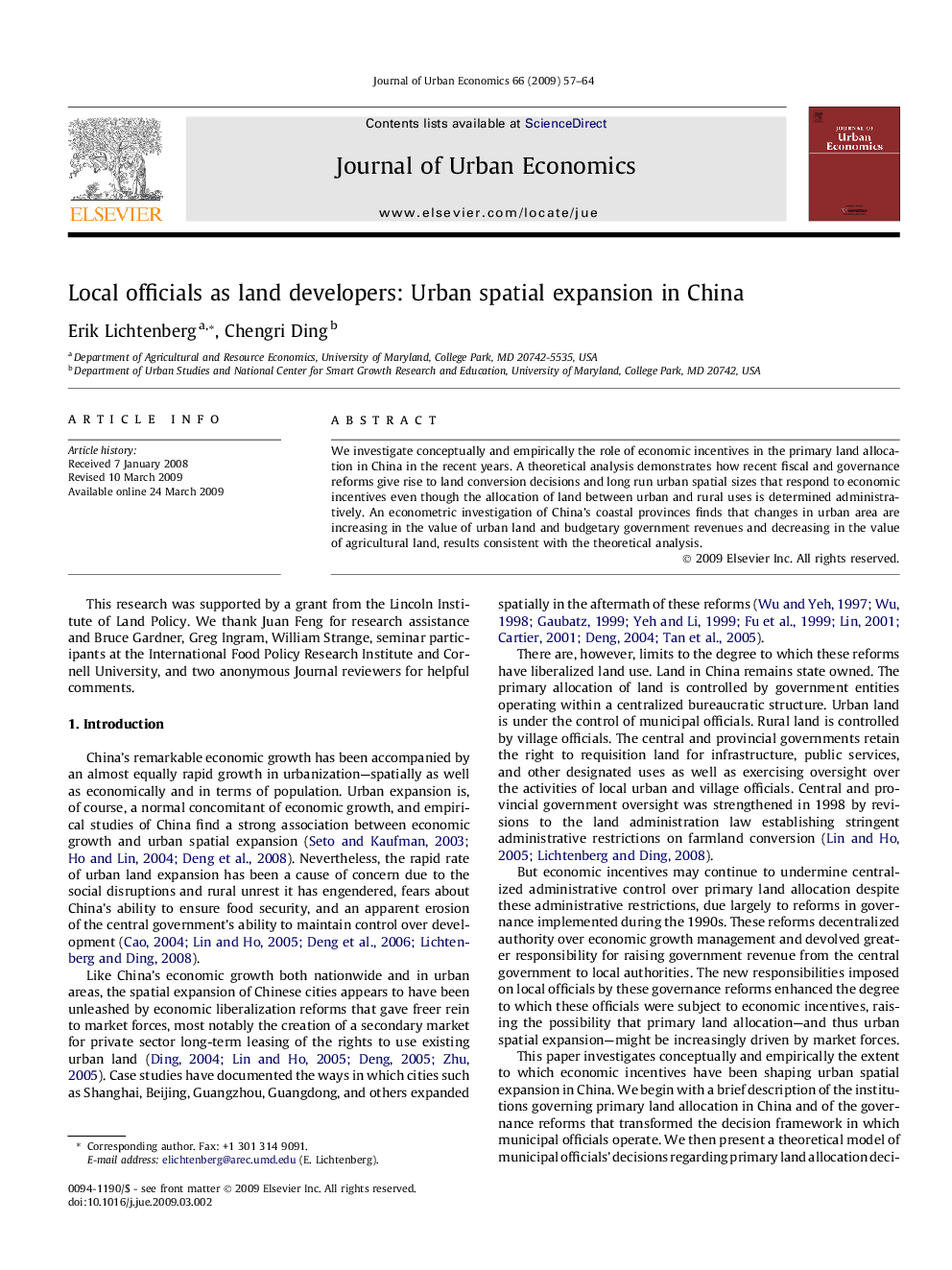| Article ID | Journal | Published Year | Pages | File Type |
|---|---|---|---|---|
| 971363 | Journal of Urban Economics | 2009 | 8 Pages |
Abstract
We investigate conceptually and empirically the role of economic incentives in the primary land allocation in China in the recent years. A theoretical analysis demonstrates how recent fiscal and governance reforms give rise to land conversion decisions and long run urban spatial sizes that respond to economic incentives even though the allocation of land between urban and rural uses is determined administratively. An econometric investigation of China’s coastal provinces finds that changes in urban area are increasing in the value of urban land and budgetary government revenues and decreasing in the value of agricultural land, results consistent with the theoretical analysis.
Related Topics
Social Sciences and Humanities
Economics, Econometrics and Finance
Economics and Econometrics
Authors
Erik Lichtenberg, Chengri Ding,
